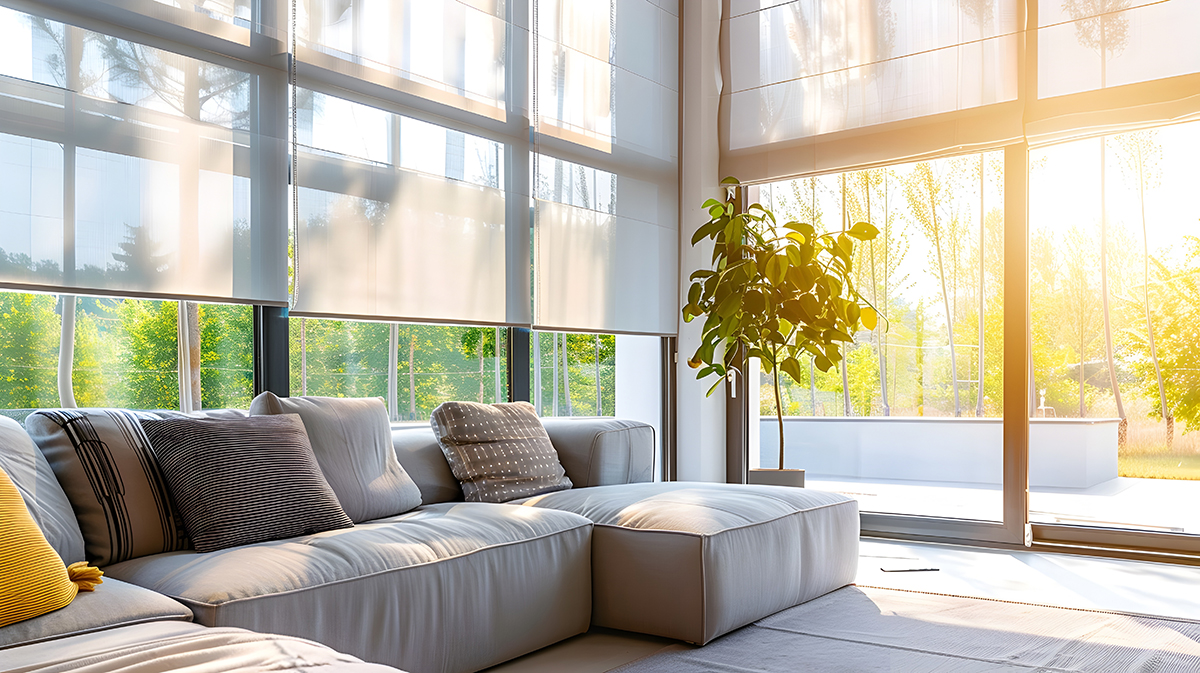
Windows are the eyes of your house. They help tie you to the outside world, they let the natural light in, and they determine the comfort of where you live. But did you know that windows alone can contribute to 30% energy loss in a house?
It translates to the fact that selecting the appropriate windows is not merely a design process, but an important move towards energy conservation, lessening utility expenditures, and producing a healthier home.
-
Look For Thermal Break Technology
The thermal resistance of a window is one of the largest energy performance determinants. Conventional aluminum windows are durable, but they conduct heat easily. This is the reason why thermal-break aluminum is a game-changer. Because it adds a barrier between the interior and exterior aluminum frames, it keeps the undesired heat or cold out.
At Window Star, we use thermal-break designs introducing European innovation to Canadian houses, which keep the rooms warm all year round at low energy costs.
-
Check the Glass Options
Glass isn’t just glass anymore; it’s technology. Here are a few types you’ll want to consider:
- Double or Triple Glazing: Additional windows that contain insulating material limit their heat loss and external noise.
- Low-E Coatings: Microscopic layers on the glass reflect heat in your home in winter and keep it out in summer.
- Gas Fills ( Argon or Krypton): Inert gases between panes are considered to be invisible blankets, which provide insulation.
Energy-efficient windows can work together with all three to be more efficient. Your furniture and flooring may also be guarded against damaging UV rays by the right glazing. You can also check here for windows and doors company in Brampton.
-
Pay Attention to Window Frames
Frames influence more than just looks. The type of material used impacts insulation, durability and maintenance.
- Vinyl: Inexpensive, low-maintenance, yet not necessarily as strong to allow a big opening.
- Wood: Traditional and cozy, yet in need of maintenance.
- Aluminum (with thermal break): It is modern, slim and highly durable when properly designed.
- Composite: A high-performance blend of insulation and strength.
In Window Star, we specialize in high-performance thermal-break aluminum frames as they are strong, durable, and save on energy without affecting the aesthetic features.
-
Evaluate Energy Ratings
Every region has its own standards for window performance. In Canada, for example, look for labels that highlight:
- U-Value: Lower means better insulation
- Solar Heat Gain Coefficient (SHGC): How much solar heat the window lets in
- Energy Rating (ER): A balanced score combining multiple performance measures
These ratings provide an apples-to-apples comparison, allowing you to select the most efficient option for your climate confidently.
-
Consider Your Home’s Orientation
The most energy-efficient window in a south-facing room might not prove to be the same as a north-facing window. In winter, south-facing windows experience greater solar gain, and in summer afternoons, west-facing windows may require coatings to prevent overheating. An intelligent solution of windows depending on the orientation of your home will maximize comfort and efficiency.
-
Don’t Forget Installation
Even the finest window will not work well when it is installed the wrong way. Any holes, improper sealing, and shortcuts in the installation process can negate all the advantages of high-quality products. You should always use professional, well-qualified individuals who have knowledge of the technical aspects of energy-efficient installations. We adopt best practices at Window Star to ensure our team performs airtight to ensure long-term performance.
Frequently Asked Questions
Q1: How much would I save on using energy-efficient windows?
After retrofitting your house with high-performance windows, you will save approximately 15-25%, depending on your house and weather.
Q2: Do triple-pane windows necessarily outperform the use of double-pane windows?
Not always. Triple-pane windows are better insulated, yet they are heavier and expensive. High-quality, low-E coated, and double-pane windows can also achieve the same task in moderate climates.
Q3: Are energy-efficient windows useful in reducing noise?
Yes. Doubled or tripled glazing, and gas fillings help a lot to reduce the outside noise, making your home a lot quieter and comfortable.
Q4: What is the lifespan of energy-saving windows?
Modern energy-efficient windows with quality material and correct installation can last a period of 20-30 years or even more. Thermal break aluminum frames are particularly strong.
Q5 What is the most important feature to focus on?
It is a matter of need, though we suggest concentrating on thermal performance (U-value) and the proper role of installation, which have the most significant influence on comfort and savings.
Final Thoughts
The selection of the most economical windows is not only a question of buying a product but also a question of investing in the future of your house. Find sophisticated technology such as thermal breaks, high-level glazing, and solid frames that suit your lifestyle and climate. Combine that with professional installation, and you will experience a better and more comfortable home and save money on electricity bills over the next several years.
At Window Star, we bring European engineering and Canadian craftsmanship together to deliver windows that go beyond expectations. Our thermal-break aluminum systems have been created with beauty, durability and performance in mind. From consultation to installation, we collaborate with you all the way to make sure that your home is fitted with the best.
When you are ready to replace your current windows with energy-saving models that truly make a difference, contact Window Star. Let’s build a home that’s as efficient as it is beautiful.

